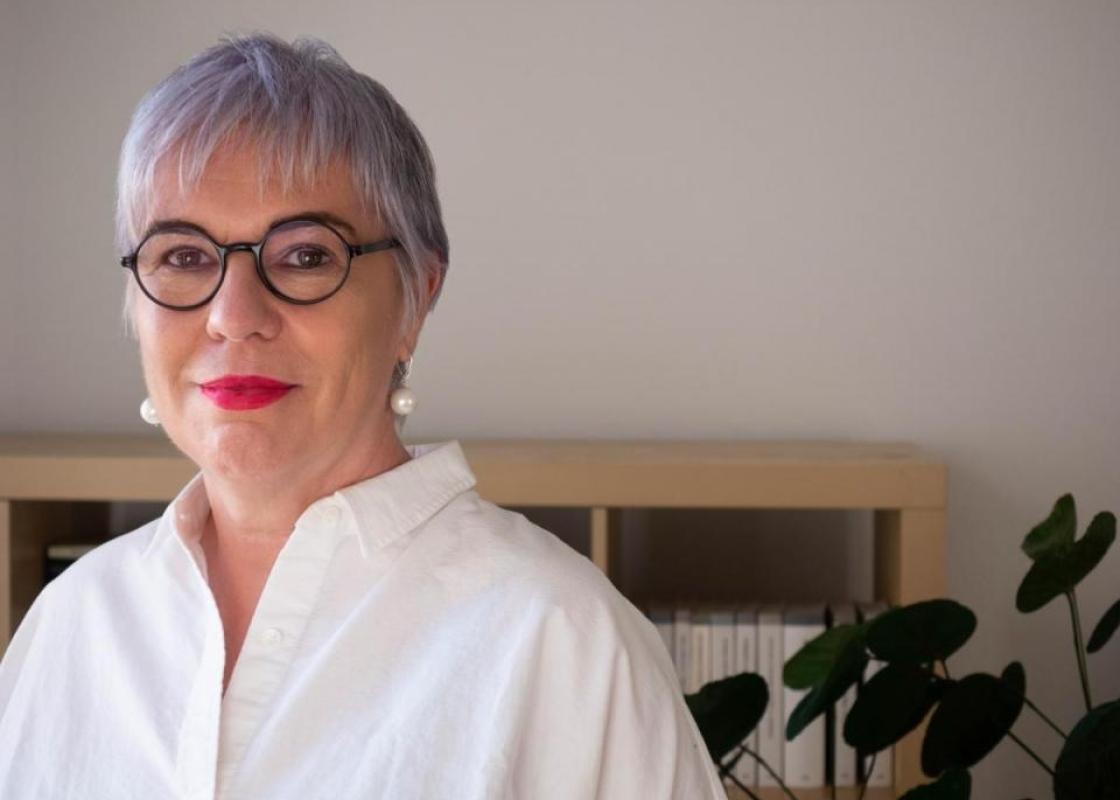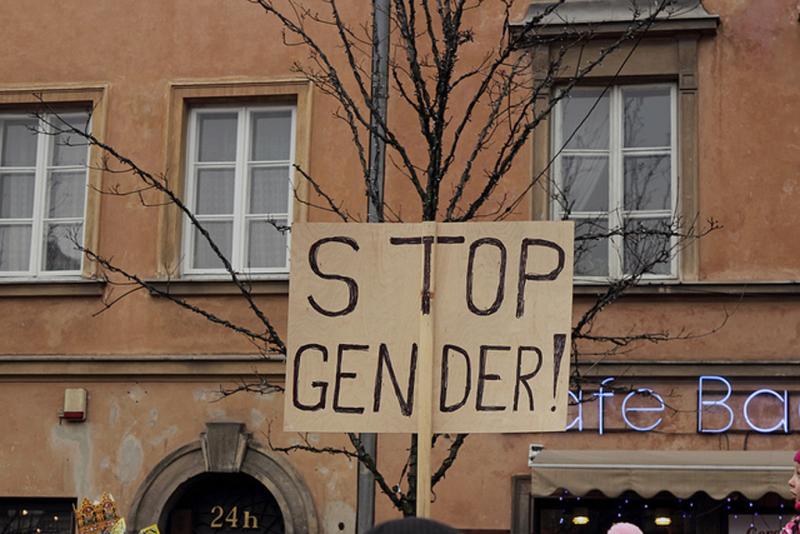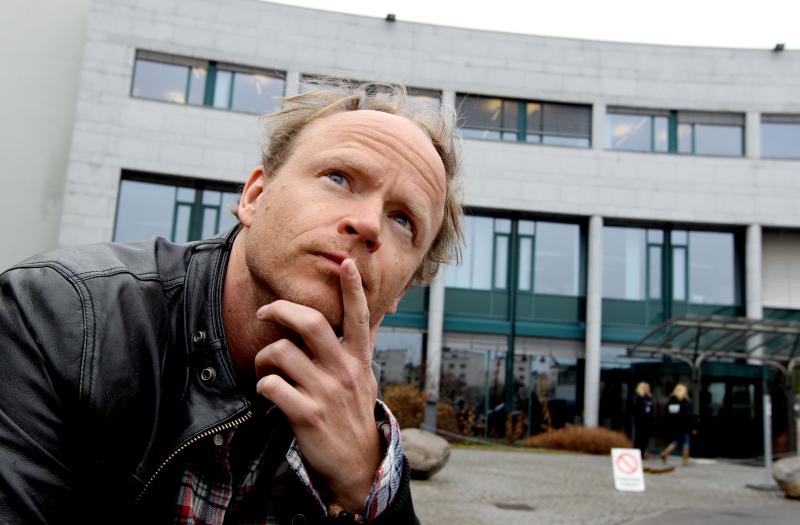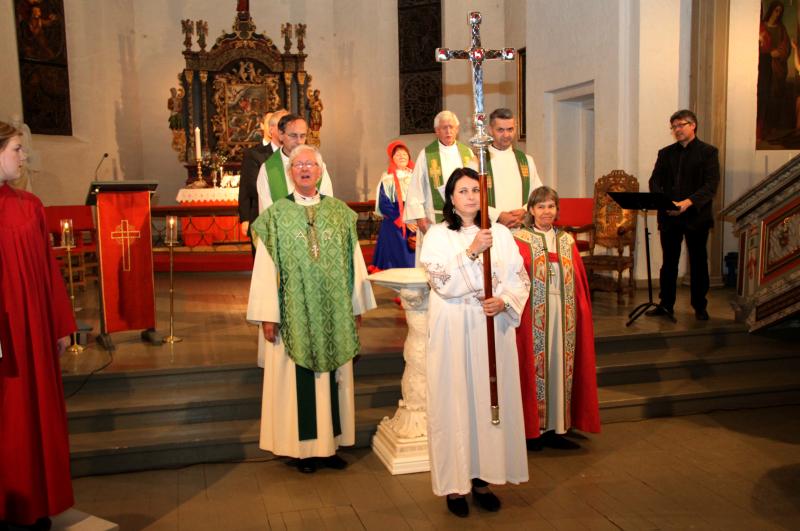“I'm honoured. I looked at the list of the other academics who have won the award, and by comparison, I am sitting safely in my office in Austria, I'm doing relatively well,” says Pető on the telephone, after being told that she’s been awarded the University of Oslo's Human Rights Award.
Andrea Pető is a professor, historian and gender researcher at the Central European University (CEU), founded in 1991, in the wake of the fall of the Iron Curtain. Until 2018 the university was based in Budapest but is now situated in Vienna, Austria. The university lost its accreditation in Hungary after the government, led by Viktor Orbán, passed a law that forced the CEU out of the country and closed down the gender studies programme. Pető now finds herself in Vienna, for her third academic year.
“I was among the first employees at CEU in 1991, so I obviously have a strong connection to the university and its mission,” Pető says.
The jury, represented by Åse Gornitzka, who chaired the award committee, describes Pető as “a fearless defender of academic freedom and institutional autonomy.”
Pető may be fearless, but she is concerned about the effect fear has on the freedom of thought. There's a reason she no longer lives in Budapest.
"You end up on the front page of state-owned newspapers where you're referred to as an enemy of the state. You can try to ignore it but you just don't feel safe in such a hateful climate. It's not exactly good for academic work," says Pető.
"Winning this award recognises that working for academic freedom is part of a bigger issue. It's not just about academics but also about democracy and women's rights.
The canary in the coal mine
One of Andrea Pető's recent works is a book that deals with the war crimes committed by female Hungarian soldiers during World War II. She has worked in the fields of gender and Holocaust research for decades, representing "disciplines that come under attack when European regimes move in a more authoritarian direction,” as the University of Oslo stated in their reasoning for giving Pető the award.
“The last time you were in Oslo, in 2018, you talked about living in a depressing time, not long after gender studies in Hungary were discontinued.
“Yes. I wasn't depressed but we do need to acknowledge that working in higher education has in fact become high-risk work.
Pető mentions her colleagues who are working behind bulletproof glass in, for example, the United States, and that she herself received death threats while living in Hungary. The threat directed at Pető went uninvestigated by the police. She and her colleagues have also been harassed in social media.
There may not be a murder weapon, but harassment may have murderous consequences for academic freedom.
“People have this image in their minds of professors working in dusty libraries, but all that has changed and the higher education institutions just aren’t prepared for it.
She herself doesn’t believe that those who harass online are actually interested in killing, but want to silence gender researchers.
“It’s a way of disciplining us. Those responsible for the digital harassment want us to think twice before speaking, to restrain ourselves. There may not be a murder weapon, but it may have murderous consequences for academic freedom.
“Why is gender research in particular so controversial?”
“This happens to academics in several fields, but gender researchers are like canaries in the coal mine.”
Pető refers to how canaries were the first to notice if toxic gases were leaking into the mines. A sudden silence from a canary that usually sings would warn the miners of danger ahead.
“Gender research is a critical field that seeks change. It arose from the women's movement, its social criticism, and criticism of knowledge and the production of knowledge,” Pető points out.
The main criticism of gender research, not only by the Hungarian government but by others around the world, is that it is not a science, but an ideology. The Hungarian government also argued that gender studies students don’t get jobs.
This could be seen in context with the emergence of "anti-gender ideology" and the "anti-gender movement", which Pető has discussed on several occasions. The anti-gender movement attracts activists, politicians and conservative religious people. Criticism of gender as a social phenomenon is something that binds the movement together. In Pető's own words, gender is a “symbolic glue”.
Pető wrote an article about the movement in 2017, and how the movement gave increasingly negative attention to a still relatively young field of research.
“All of a sudden, everyone in Hungary was a gender expert, everyone had an opinion about gender studies, the kind of learning outcomes students would get, and what kind of curriculum they read,” says Pető.
Polypore states
Pető believes that Hungary is not alone in experiencing a backlash against academic freedom or that gender research in general is under attack. She refers to the backlash experienced by gender researchers around the world, for example from the far right.
She is also critical of what she refers to as a "neoliberal development" in academia with its measurable outcomes, quotations and focus on impact. At the same time, these are the only mechanisms that actually protect academia from authoritarian attacks, she says.
“Illiberal forces are removing accreditation for gender studies, such as in Hungary. Or they are gradually withdrawing opportunities to get funding for projects relating to gender, such as in Poland. They restructure teaching programmes, or remove independent institutes, or absorb them into larger units.
Pető uses the term "the polypore state" to describe developments at Hungary’s universities. Polypore is a parasitic fungus – a bracket fungus – that grows on trees and is self-reproducing. Like a bracket fungus that slowly kills the tree upon which it grows, research institutions in Hungary are being bought up by foundations owned by people loyal to the government, she claims.
“The result of this illiberal research policy is the growth of parallel institutions that appear to be scientific institutions but are not, because they lack freedom – the freedom of inquiry, the freedom of thought, the freedom of expression, the freedom from self-censorship.
An example of such a "polypore growth" is how gender or the word "woman" is replaced by the word "family" in new study programmes. When Pető last year wrote a critical article about illiberal research policy in Hungary, she was asked to amend the article. In stead, she resigned from the Hungarian Accreditation Committee.
Pető believes Hungary is a kind of laboratory for authoritarian states worldwide and that its model is being replicated elsewhere.
In spite of this, Pető does not have a bleak view of the future. This year, the number of applicants to the Central European University is at a record high and new students are right now settling in on campus. The negative attention surrounding gender studies has also led to more people becoming interested in the field.
When asked how challenges to academic freedom and the curtailing of the field should be met, she responds that the answer primarily lies in providing “fantastic teaching”.
“We must also write excellent texts, texts that reach far and wide,” says Pető.
“The classroom is a crucial battlefield in the fight for democracy,” she believes.
This article was first published in Norwegian, and was translated by Allegro language services.
In December, Andrea Pető will travel to Norway to receive the Human Rights Award from the University of Oslo. It has been awarded since 1986. Former (recent) winners include Jan Petter Gitlesen, Marcelline Budza, Seyran Ateş, Nora Sveaas, Ishtar Gözaydin and Diana Kordon.
Andrea Pető was nominated by Scholars at Risk Norway and Kilden genderresearch.no



